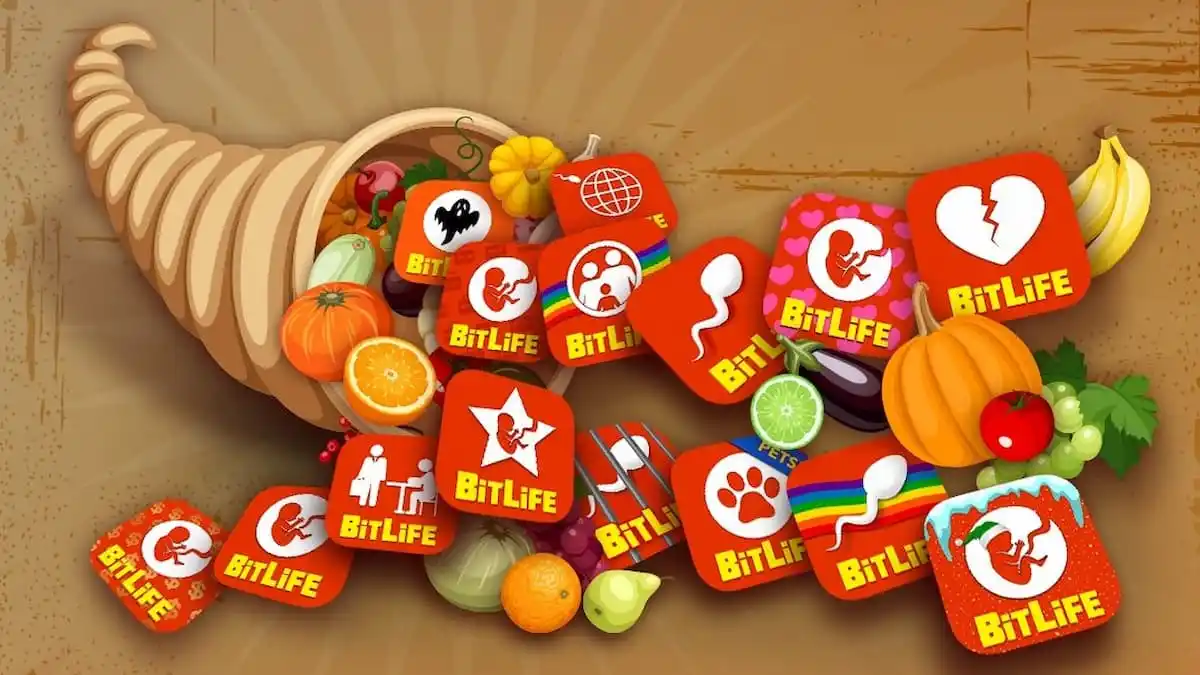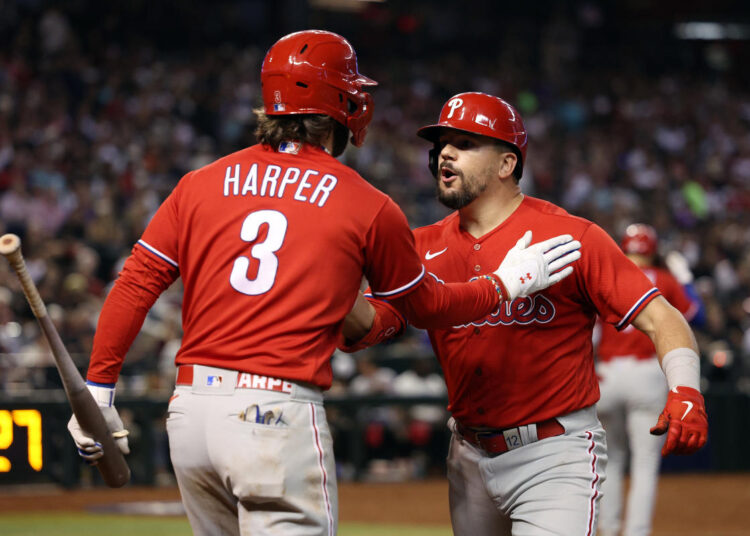And then there were eight. With the wild-card round in the rearview mirror, it’s on to the Division Series, where the top four teams in the bracket get in on the postseason fun.
On the NL side, we have two divisional showdowns in Mets-Phillies and Padres-Dodgers. On the AL side, it’s the Central vs. the Yankees, as the upstart Tigers take on the Guardians — the first time any two AL Central teams have met in October since the division was formed in 1994 — and the Royals attempt to bring down the Bronx Bombers.
Let’s break down the matchups before the best-of-five series begin Saturday.
NO. 6 DETROIT TIGERS vs. NO. 2 CLEVELAND GUARDIANS
How they got here
Tigers: Still riding a mind-bending, two-month run of collecting memorable win after memorable win, the Tigers have been the AL’s version of the Mets, minus about $200 million of payroll, plus a decade-long absence from the postseason before this year’s stunning berth. Since they dropped to 55-63 on Aug. 10, with their postseason odds dipping to near-zero, the Tigers have won more games than any other team in MLB.
Losing a series to the White Sox on the final weekend of the regular season redirected the Tigers to Houston, instead of Baltimore, for the wild-card series, which appeared to be a more daunting task. That was quickly proven otherwise, as Detroit swept the perennial powerhouse Astros, putting an end to Houston’s remarkable run of trips to the ALCS and extending the Tigers’ season at least one more round. With soon-to-be AL Cy Young winner Tarik Skubal and an army of largely anonymous yet highly effective hurlers beyond him, manager AJ Hinch has fully embraced the “pitching chaos” strategy and has consistently set his collection of position players up for success, whether that’s every-day guys such as Riley Greene or carefully deployed bench cogs such as Andy Ibañez.
Guardians: Coming off their worst season since 2012, the Guardians entered a new era for the franchise following future Hall of Famer Terry Francona’s decision to step down from his longtime post as the Cleveland skipper at the end of 2023. The Guardians jumped out to an early division lead this spring, thanks to baseball’s best bullpen headlined by baseball’s best closer in Emmanuel Clase and three All-Stars atop the lineup in José Ramírez, Steven Kwan and Josh Naylor.
Although Naylor and Kwan fell off in the second half and the division turned out to be ultra-competitive, Cleveland’s grip on first place held firm as the tremendous relief corps kept chugging along, nailing down close win after close win. Meanwhile, Ramírez didn’t slow down one bit and nearly joined the 40 HR/40 SB club with yet another outstanding campaign. Cleveland’s 92 wins were good enough to earn the No. 2 seed and a first-round bye.
Key matchup
AJ Hinch vs. Stephen Vogt: For all the rightful attention Hinch has received for being at the helm of Detroit’s turnaround, first-year manager Stephen Vogt represents a fascinating counterpart in the Cleveland dugout after guiding the Guardians to the division title in his first year as a manager, just two years removed from the end of his playing career. Guardians players and coaches have consistently lauded Vogt for the clubhouse culture he has cultivated and how seamlessly he has handled the intricacies of deploying a pitching staff that, like Detroit’s, has required a degree of creativity due to unexpected underperformance and a rash of injuries to the rotation.
In October, though, such decisions come under far greater scrutiny than, say, when you pull your starting pitcher against the Angels in early May. Now is when every pitching change, pinch-hitter and defensive positioning detail are analyzed far more closely, and that’s not something Vogt has experienced yet. That’s not to say he won’t be able to handle the unforgiving gauntlet that is baseball’s postseason, but he’s more of an unknown quantity compared to Hinch, who has proven himself not only over the past two months but also in numerous high-stakes games with Houston in years past.
How they win
Tigers: The Tigers have proven that they can win at an exceptionally high clip with practically a one-man rotation, but such a strategy works only when that one man is possibly the best pitcher on Earth in Skubal, the kind of arm that can single-handedly tilt the balance of any contest. Unlike in Houston, where the Tigers could hand the ball to Skubal to set the tone in Game 1, the ace lefty is slated to start the second game of this series on Monday.
If Detroit drops Game 1, Skubal will be ready to go on full rest in Game 2, giving the Tigers a strong chance to tie the series and recapture some momentum before things shift to Detroit, where the crowd is sure to be rocking as Comerica Park hosts its first playoff game since the 2014 ALDS. Should Cleveland come out flat after the layoff and let Detroit steal Game 1, the Tigers will be firmly in the driver’s seat, practically able to smell the ALCS. Either way, Skubal’s start represents something of a must-win for Detroit. So much is predicated on his delivering his best that anything less will make the rest of Detroit’s pitching plans that much more complicated to piece together.
Guardians: With Skubal looming in Game 2, it’s paramount for Cleveland to start this series on the right foot in Game 1, especially after an extensive layoff that became even longer than expected when Game 162 was rained out on Sunday. We’ve seen a handful of recent postseason teams with byes start sluggish once they finally hit the field, especially on offense. The Guardians must avoid that pitfall because the best version of their offense — one that features more slugging and stolen base potential than Detroit’s — represents the most notable talent gap between them and the opposing Tigers.
You can make a strong case for either of these teams’ pitching staffs having the edge, based on the singular strength of Skubal or the Guardians’ standout bullpen, but Cleveland’s offensive ceiling is certainly higher if its three All-Stars are firing on all cylinders. If the performances on the mound turn out to be something of a coin flip, Cleveland’s biggest bats have the opportunity to give the Guardians the edge.
Series prediction
Guardians in 5: As demonstrated by the regular-season series — in which Cleveland took seven of 13 games, but Detroit outscored the Guardians 60-50 — these teams match up quite well. They also haven’t played each other since July, and Detroit has transformed since those battles, so the Guardians are facing something of an unknown foe. Still, for as good as Detroit has been down the stretch, Cleveland has proven over an even larger sample that it is capable of winning in multiple ways; finishing first in this rejuvenated AL Central was no small feat. It’s tough to pick against the sizzling Tigers, but I think the Guardians find a way to get it done. — Shusterman
NO. 6 NEW YORK METS vs. NO. 2 PHILADELPHIA PHILLIES
How they got here
Mets: With the swing of a lifetime and the magic of an anthropomorphic purple blob who loves milkshakes. Since turning their season around in early June, the Mets have become an unstoppable circus of joy, racking up wins and shticks by the truckload. They have a new lucky playoff pumpkin, a theme song, the second-best player in the National League, strong starting pitching and, of course, Grimace.
Pete Alonso’s heroic, go-ahead, three-run blast that propelled the Mets to the NLDS on Thursday was both shocking and obvious. This team hasn’t slept in weeks, and it doesn’t matter one bit. The 2024 Mets are the greatest night of your life, a thrill ride of chaotic energy. Is it weird that the club with the highest payroll in the sport has evolved into a lovable underdog? Yeah, a little bit. But don’t think about it too hard; just enjoy the show while it lasts.
Phillies: With starting pitching and a lineup that has been around the block. By mid-June, it became glaringly obvious that the Phillies would, for the third consecutive season, be playing October baseball. Injuries to key Atlanta Braves all but ensured a first division title in 13 years for the Phillies, who coasted through the second half of the season after a dominant first few months.
Now the real season begins in the City of Brotherly Love. It was all a joyride until the Arizona Diamondbacks strolled into Citizens Bank Park last October and took everyone’s lunch money. The shadow of that embarrassing performance will linger over South Philadelphia until the first Phillies home run clangs into the seats this October. This is the better team, but that was also the case last year.
Key matchup
Phillies baserunners vs. Mets running game: Philadelphia had the sixth-most steals in MLB, while the Mets allowed the sixth-most steals in the regular season. Philly has wrought chaos on the basepaths in Octobers past and should look to do so again here — that is, if its speedier players such as Trea Turner, Bryson Stott and Johan Rojas can reach base enough for that to matter. New York improved its steal-stopping capabilities as the year went on, but it’s still something of a weakness for the Mets.
How they win
Mets: With a good pitching plan. Last October, the Phillies crashed out of the NLCS because the Diamondbacks kept attacking them with breaking balls outside the zone, and the Phillies couldn’t lay off. Mets hurlers should use that strategy until the Phillies show adjustments. If New York can keep the games close, particularly the ones in Philly, the tension that smothered the Phillies last October will return. Take one of two games in Philly, return to Queens to a packed, cacophonous home crowd, and let the good times continue.
Phillies: By the stars shining. New York beat Milwaukee last round because its big dogs — Alonso and Francisco Lindor — showed up and showed out. In this one, Philadelphia needs Kyle Schwarber, Trea Turner and Bryce Harper at their best. There are times when that trio, who hit 1-2-3, collect strikeouts by the dozen. That sets a bad tone for the rest of the lineup.
Series prediction
Phillies in five: This should be a classic. Two fan bases a train ride apart who despise each other. Division rivals that played each other seven times down the stretch. A Cinderella freight train against an October juggernaut. Superstars all over the diamond. The Mets’ theater kid energy against the Phillies’ frat bro aura.
Vibes will define this series as much as pitching. But for me, one team gets to have Zack Wheeler throw twice; the other does not. Wheeler is an October difference-maker, and while I expect the Mets to make this a doozy, I think the Phillies can take one of the non-Wheeler games. — Mintz
NO. 5 KANSAS CITY ROYALS vs. NO. 1 NEW YORK YANKEES
How they got here
Royals: Kansas City’s pitching absolutely shut down Baltimore’s lineup during the wild-card round, limiting the Birds to just one run across 18 innings. The Royals themselves scored only three runs in the series, two of which were driven in by all-world dynamo Bobby Witt Jr., but that was enough. Perhaps the most encouraging dynamic for the Royals was the lockdown performance from their bullpen. That was a shaky unit for Kansas City for a good bit of the season, but Lucas Erceg, Kris Bubic, Sam Long and Angel Zerpa all looked great against the O’s.
Yankees: With a whole lot of home runs. Aaron Judge delivered a historic offensive season, perhaps the best ever by a right-handed hitter. The addition of Juan Soto went even better than Yankees fans’ wildest dreams. Everyone else in the lineup did enough. The Orioles slid down the stretch to hand the Yankees, winners of “just” 94 games, the division title. In a season without an obvious, 100-game-winning juggernaut, the Yanks were the closest thing.
Key matchup
Royals righty hitters vs. Carlos Rodón: For Kansas City to make this a series, the Royals will need to steal one of the first two contests in the Bronx. Game 1 feels like a tall task with reigning AL Cy Young Gerrit Cole on the bump for New York. Game 2, however, feels more doable. K.C. will have its ace, Cole Ragans, who was magnificent against Baltimore in the wild-card round, against Yankees southpaw Carlos Rodón.
Rodón has been much improved this season, compared to his disastrous first year in pinstripes last season. But the hard-throwing lefty is still homer-prone; his 31 long balls allowed ranked second in the major leagues during the regular season. And he allowed 28 of those homers to right-handed batters, the most in MLB.
This entire series might come down to 1) whether any of Kansas City’s righties can pop one off Rodón and 2) how many runners are on base if/when that happens.
How they win
Royals: Magnificent pitching, chaos on the bases, Witt going ballistic and a whole lot of good fortune. K.C. needs to lean upon its two biggest advantages in this series: pitching depth and speed. The Yankees have an obvious edge on the mound in Game 1, but with Ragans and Seth Lugo going in the next two, the Royals have a chance. But both starters need to be dominant. The off days in this short series benefit Kansas City as well; the Royals will be able to throw Ragans again in a potential Game 5.
That said, Kansas City’s offense looked so lost against Baltimore, bailed out only by the pitching and the Orioles’ own ineptitude. Somebody other than Witt needs to have a moment. Witt, meanwhile, looks so comfortable thus far in his first postseason. Getting to watch him in the Yankee Stadium hornet’s nest will be a joy.
Yankees: By bludgeoning the Royals into oblivion. The Yankees hit 67 more homers during the regular season than their opponents. Their team OPS was 51 points higher. Aaron Judge, Juan Soto and Co. should be able to overwhelm a club that scored just three runs across two games in the previous round. Kansas City had the single worst offense in baseball during September. Nothing the Royals did in the wild-card round proved that the trend is going to change. The Yankees simply need to play their style of station-to-station, big-swinging baseball and take care of business.
Series prediction
Yankees in four: It’s really tough to envision the Royals scoring runs in buckets right now. Kansas City’s pitching will keep these games closer than expected, but the Yankees have too many difference-makers at the plate. — Mintz
NO. 4 SAN DIEGO PADRES vs. NO. 1 LOS ANGELES DODGERS
How they got here
Padres: Coming off a disappointing and confounding 2023 in which they missed the postseason, the Padres got off to something of a slow start this season but really put things together in the second half. Veteran third baseman Manny Machado, rookie sensation Jackson Merrill, perennial batting champ Luis Arraez and resurgent star Fernando Tatis Jr. lifted the offense as the acquisitions of Tanner Scott and Jason Adam gave the Padres one of the best bullpens in the sport down the stretch. The Padres made the Dodgers sweat out the NL West title more than they had to in any recent season, but in the end, San Diego landed with the NL’s top wild card and swiftly dispatched the Braves in the first round.
Dodgers: You know this story by now. The Dodgers, already an NL juggernaut and the West’s top team over the past decade, spent more than $1 billion in free agency last winter, adding to their lineup the singular Shohei Ohtani, as well as starting pitchers Tyler Glasnow and Yoshinobu Yamamoto, among others. Injury after injury decimated the rotation and lineup over the course of the regular season, but L.A. prevailed nonetheless, thanks in large part to a history-making season from Ohtani powering this team to the best record in baseball and the No. 1 overall seed in the postseason.
Key matchup
Padres bullpen vs. Dodgers MVP trio: The reason you go out at the deadline and ship away a bunch of prospects for relievers such as Scott and Adam is for when you arrive in October and are tasked with neutralizing the best hitters on the planet several times over the course of a series. The Padres’ bullpen was already a strength, based on the All-Star first half of Robert Suarez and the breakout of Jeremiah Estrada, but general manager AJ Preller wisely recognized that for his team to have the best chance to go on a deep playoff run and not just settle for a strong regular season, further reinforcements were required.
In all likelihood, somewhere in this series, Ohtani, Mookie Betts and Freddie Freeman will be coming up to bat late in a close game, and at that point, it will be on San Diego’s stockpile of star relievers to record the high-stakes outs that they have been building toward all season.
How they win
Padres: Although starting pitcher Joe Musgrove will miss the remainder of the postseason after the news that he needs Tommy John surgery, the Padres still enter this series with an edge in pitching depth, and Michael King’s sensational wild-card outing only strengthened that sentiment. Sweeping the Braves also affords the Padres the chance to roll out Dylan Cease in NLDS Game 1, a level of pitcher rarely available for a team that advances from the wild-card round to the division series with such a quick turnaround.
Beyond the apparent edge on the mound, the Padres can win this series if their best bats — most notably Tatis, who didn’t appear in the 2022 NLDS due to suspension — play to their fullest potential and take advantage of the softer parts of the Dodgers’ pitching staff when the opportunities present themselves. San Diego’s elite collective contact ability establishes a much higher offensive floor than that of a Dodgers team that has some real whiff potential at certain spots in the lineup; the ability to put the ball in play in big spots might also prove pivotal to the Padres’ chances.
Dodgers: Depth might not be in Los Angeles’ favor after the tidal wave of injuries, but the upside for the best arms still remaining on this staff should not be overlooked. We’ve seen Yamamoto look like one of the best pitchers in the game, and if that version of him shows up in Game 1 and the Dodgers roll at home, this series will start to look very different very quickly. If Yamamoto and/or Jack Flaherty can be on their A-game, the Dodgers’ bullpen, while not quite as deep as San Diego’s, does have arms in Michael Kopech, Blake Treinen and Alex Vesia that are plenty capable of slamming the door when called upon, even with a one-run lead against a great Padres lineup.
Look past the pitching, though, and the path for Los Angeles to advance is a lot more straightforward: The Dodgers’ much deeper, star-studded lineup might be good enough to flatly overwhelm the opposition and more than compensate for the team’s questions on the mound.
Series prediction
Padres in 5: Even if they didn’t ultimately chase them down for the division crown, the Padres proved all season that they have the talent to hang with the Dodgers, and now they seem to have every facet of their roster clicking at the right time to enable another October toppling of their rivals.
With so much star power on both sides, I’m fully expecting a heavyweight fight that goes the distance — and ultimately favors a Padres roster that appears a bit more balanced and features a few more solutions for when things inevitably go haywire. The only thing we know for sure: This is going to be ridiculously fun to watch. — Shusterman
Read the full article here

























